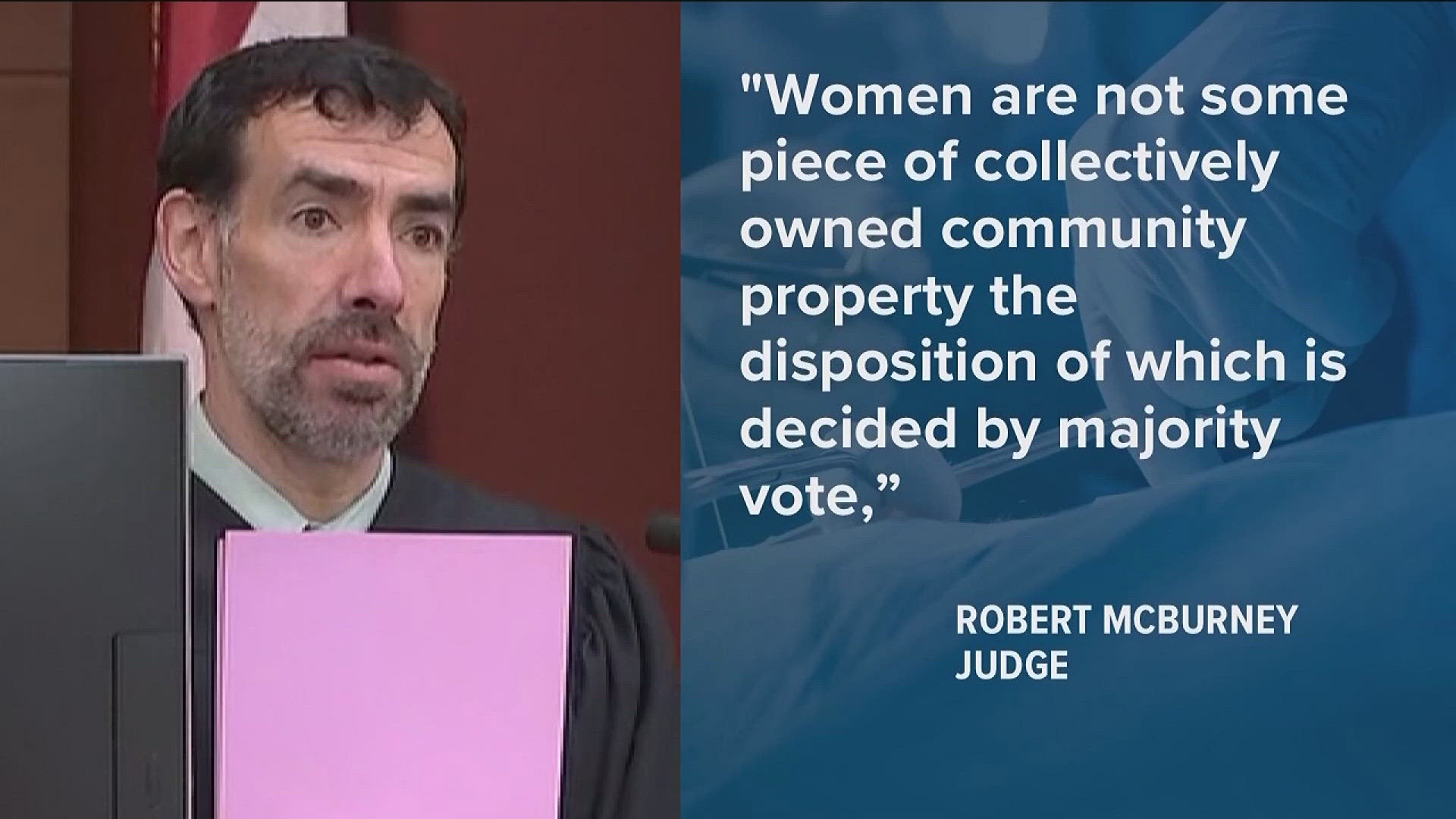ATLANTA — A Fulton County Superior Court judge ruled Georgia’s six-week abortion ban, known as the “Heartbeat Law,” unconstitutional on Monday, temporarily reinstating the legal window for abortions up to roughly 22 weeks of pregnancy. The decision, however, is unlikely to end the state’s ongoing legal battles over abortion rights.
Judge Robert McBurney cited the Georgia Constitution’s protections for privacy and liberty in his ruling, stating, “Women are not some piece of collectively owned community property the disposition of which is decided by majority vote.” His decision marks the second time in two years that Georgia's controversial law -- the Living Infants Fairness and Equality Act, or LIFE Act -- has faced legal opposition.
Former U.S. Attorney Kent Alexander explained that McBurney’s ruling is grounded in Georgia’s constitution. “Judge McBurney basically looked to the Georgia constitution and said the six-week ban on abortions was unconstitutional due to the right to liberty and privacy,” Alexander told 11Alive.
For now, abortions remain legal until around 20 to 22 weeks of pregnancy, a period referred to as “viability.” However, the future of the law remains uncertain. Attorney General Chris Carr has already announced plans to appeal the decision, releasing a statement that read, “We believe Georgia’s LIFE Act is fully constitutional, and we will immediately appeal the lower court’s decision.”
This back-and-forth has left medical providers and patients across Georgia in a state of uncertainty. Shawana Moore, a nurse practitioner, says health care providers must stay vigilant as the legal landscape around abortion shifts.
“It’s a time for health care providers to really be aware of what's happening legislatively when it comes to abortion care, and to reassure both providers and the patients we serve,” Moore said.
The constant changes to the law, which has shifted multiple times since its introduction in 2019, have made it difficult for healthcare professionals to offer guidance to their patients. Moore emphasized that while they await clarity from the courts, her priority remains providing the best care possible.
As both sides of the legal battle prepare for more courtroom showdowns, the future of Georgia’s abortion laws remains in flux. Until further legal clarity is provided, abortion remains legal in the state up until approximately 22 weeks.
Legal uncertainty ahead
Experts expect the ruling to face swift legal challenges, with both anti-abortion and pro-choice advocates closely monitoring future decisions. Alexander noted, “Everybody on both sides of this issue is stressing right now because everything is in flux. This decision controls everything, and the appeal will control everything.”
The uncertainty surrounding Georgia's abortion laws reflects the national debate following the overturning of Roe v. Wade, leaving states to navigate their own paths on the contentious issue.
As Georgia’s legal system prepares for another round of appeals, patients and healthcare providers are left grappling with the ever-changing reality of reproductive healthcare in the state.
What Comes Next?
Carr’s office has not yet provided a timeline for when an official appeal will be filed, but the case is expected to progress to Georgia’s Supreme Court. Until then, abortion remains legal up to approximately 22 weeks, with the potential for further legal restrictions looming on the horizon.
For patients and providers alike, staying informed will be key as the legal situation continues to develop.

